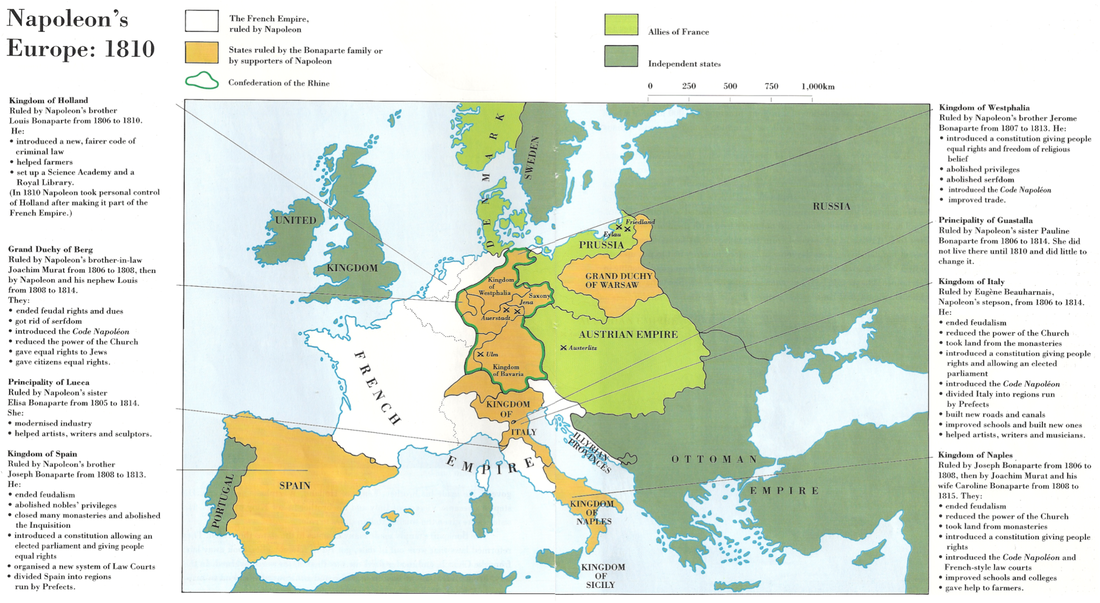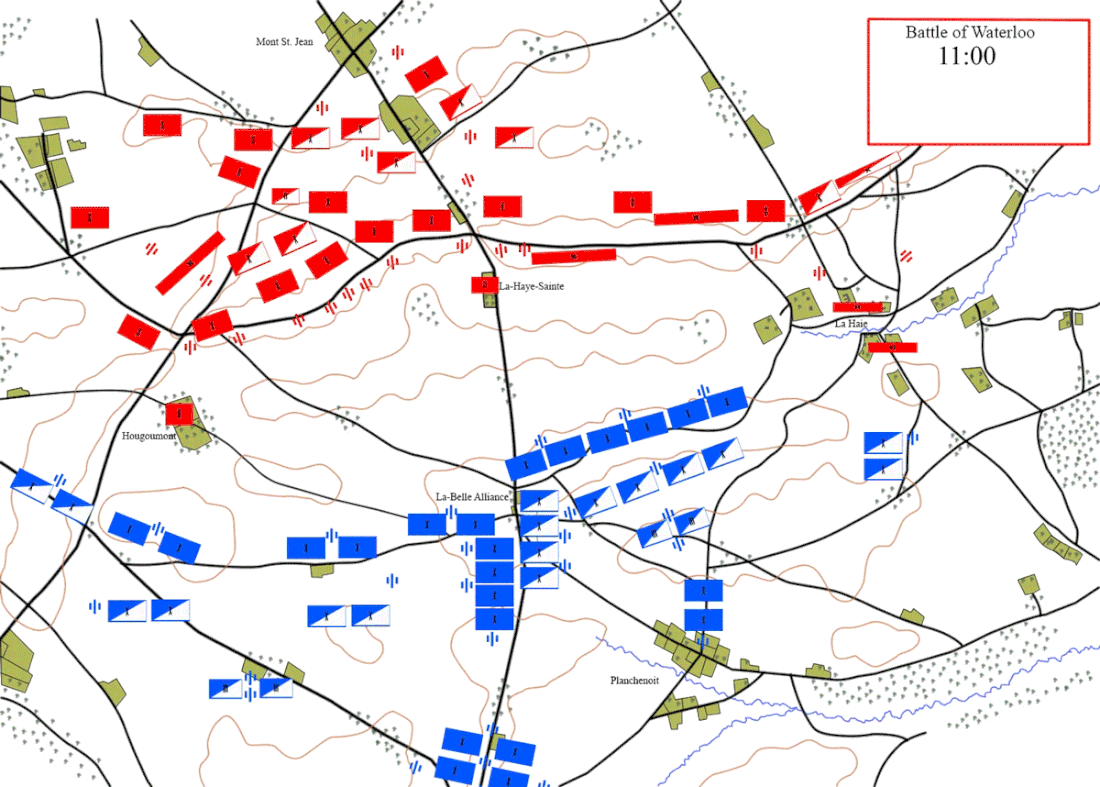Lesson 7 - Napoleon's Europe
|
|
The peace that Napoleon made in 1802 did not last. Britain, Russia and Austria formed another Coalition in 1805 and restarted their war against France. Napoleon’s armies won that war and conquered half of Europe in the process. In the lands that they took, the French made great changes to the way they were organised and run. Many of the changes had long-lasting and important results that we will study later in the unit Matu 5 Nationalism. Napoleon defeated the Coalition’s armies in a series of battles in central Europe. In 1805 he smashed the Austrian armies at Ulm and Austerlitz. Those interested in the military history are encouraged to watch the film (below) about Trafalgar and, more importantly Austerlitz. When the Prussians joined the Coalition in 1806 he defeated them in the battles of Jena and Auerstadt. In 1807 he beat the Russians in the battles of Eylau and Friedland. With three major enemies beaten, there was nothing to stop Napoleon enlarging his empire.
|
|
In 1807 he made the Italian states of Tuscany and Parma into French provinces. In 1809 he took the Illyrian Provinces and the Papal States. And in 1810 he added Holland and north-east Germany to the empire. As well as enlarging the French empire, Napoleon made changes to the countries which shared a border with it. In 1808, for example, he occupied much of Spain. In central Europe, he forced the rulers of many small German states to join their lands together. This reduced the number of German states from 300 to thirty. Then, in 1806 he brought the leading German rulers together in a union called the Confederation of the Rhine, with himself as their leader. As in Switzerland, Napoleon's actions in the German and Italian states would be critically important to the creation of sense of national identity in these regions and the future creation new national states.
|
|
|
|
Napoleon's Europe
Unwilling to trust others to govern his empire, he made his brothers Kings of Holland, Westphalia and Spain. His step-son became Viceroy of Italy and his brother-in-law King of Naples. His sisters were given the smaller Italian states to rule. The Bonaparte family made many changes to the states they ruled. They reformed laws that were out of date and replaced them with the Code Napoleon, they got rid of feudal rights, took away land from the Church, and modernised the way their states were governed. In this way, French revolutionary ideas about how to organise and run countries spread to many parts of Europe. |
The map below summarises some of the key changes made Napoleon during the time of the Empire. You can open up a bigger version clicking on the map.

The defeat of Napoleon.
The end of Napoleonic Europe is technically not in the syllabus so we can't spend too much time on it, but surely we need to finish the story! In brief, along with the failure to defeat the British at Trafalgar and ongoing problem of Spain, Napoleon's most significant problem came with his attempted invasion of Russia in 1812. (cf. Hitler's Operation Barbarossa in 1941- Matu 11). After his final defeat in 1814, he was exiled to the island of Elba but returned to France in 1815 in 100 days of campaign which led to his final defeat at Waterloo. The Congress of Vienna was established to settle the post-Napoleonic peace of Europe.
The end of Napoleonic Europe is technically not in the syllabus so we can't spend too much time on it, but surely we need to finish the story! In brief, along with the failure to defeat the British at Trafalgar and ongoing problem of Spain, Napoleon's most significant problem came with his attempted invasion of Russia in 1812. (cf. Hitler's Operation Barbarossa in 1941- Matu 11). After his final defeat in 1814, he was exiled to the island of Elba but returned to France in 1815 in 100 days of campaign which led to his final defeat at Waterloo. The Congress of Vienna was established to settle the post-Napoleonic peace of Europe.
|
|
|
Finally, and not that I need any excuse, but here are two of my favourite animated gifs on the internet.
|
The first below shows Minard's famous Graphic map showing the route, numbers of soldiers and temperature of Napoleon's invasion and retreat from Russia.
The second (right) shows the Battle of Waterloo. Wellington's British and Dutch troops are in red, Napoleon's and blue and Blücher's Prussians are in black. Click to enlarge
|
Activity
Watch the film Napoleon's Europe.
Download a copy of the table. Using the map above find evidence of political, economic, social and cultural change for the four different regions of Napoleon's Europe.
Watch the film Napoleon's Europe.
Download a copy of the table. Using the map above find evidence of political, economic, social and cultural change for the four different regions of Napoleon's Europe.


